
“INNOCENT PEOPLE WERE TERRIFIED BY THEIR OWN GOVERNMENT”
– ED GUTHMAN, 1998
From accused communists to Freedom Riders to the Branch Davidians, Guthman protected and defended their rights
The late Ed Guthman, who died last Sunday at the age of 89, was a rare bird the likes of which we may never see again in the world of American journalism. He was far more than just a journalist, he was an activist– using the power of his pen to bring our attention to society’s ills. His hard-hitting investigative pieces often turned up evidence which cleared the wrongly accused – and his gift of wordsmithing could then argue a persuasive case in defense of the so-called “public enemy” – eventually swaying the tide of opinion in the accused’s favor.
In short, he helped us all to see just how wrong we usually were about things.
Whereas the mainstream media gold-diggers of today love to blindly pile on any celebrity or public servant suspected of wrongdoing and rip their reputations to shreds, Guthman possessed that now-rare quality called empathy. He understood well how lives could be destroyed, families broken and spirits crushed by simple misunderstandings, or even by deliberate disinformation campaigns. Guthman held dear every Americans’ right to privacy, to express themselves freely, and their right to be innocent until (gasp!) actually proven guilty. What a concept.
Guthman didn’t just spend his life defending the famous — in fact, most of the people he helped were ordinary folks you’ve probably never heard of — but he had this uncanny way of always choosing the most unpopular person or cause in the room and taking a stand for their right to an honest, competent defense. Whether it was his investigative series which cleared the name of accused communist Melvin Rader during the 1950’s “red scare,” fighting for the rights of African-Americans while serving in attorney general Robert Kennedy’s Justice Department in the early `60s, or standing up for the Branch Davidians (at a time when it was quite unfashionable to do so) in the 1990s, Ed Guthman defended them one and all.
He knew about media witch-hunts, allright. As a byproduct of post-WWII America, he watched (no doubt in utter horror) as the private lives and political beliefs of so many innocent Americans were flung open to public scrutiny and ridicule. He saw names and careers dragged through the mud, sometimes with little or no evidence other than Joe McCarthy’s finger pointed squarely at them. Commie-hunting was America’s favorite pastime in the 1940’s and 50’s, often preferable to baseball, Mom, and apple pie, and it seemed like everybody was getting into the act: neighbors snooped on neighbors, becoming amateur informants in the federal government’s seriously overreaching effort to round `em all up. Few dared to question, lest they themselves wind up being accused of sleeping with the enemy, too.
Enter Ed Guthman, a 29 year-old reporter for the Seattle Timesin 1948. Having returned from the war (he was highly decorated, having received both the Purple Heart and the Silver Star), young Guthman was certainly eager for a good story – and boy, did he get it in the case of Melvin Rader.
Rader, a mild-mannered University of Washington philosophy professor, had been swept up in the dragnet, accused of being a Red. A paid government witness told a state legislative committee that Rader had attended a secret communist training school in New York state in 1938. In fact, Rader had been with his family at a forest camp near Granite Falls.
Guthman, with the support of his editor and publisher, tracked down information corroborating Rader’s account, exposing the accusations as groundless, and exonerated the professor. His work earned the 1950 Pulitzer Prize for distinguished national reporting and was announced by Dwight D. Eisenhower, then president of Columbia University, which hands out the award. It was The Times’ first Pulitzer.
While most journalists toil for a lifetime towards one day achieving that most coveted of awards, for Ed Guthman, winning the Pulitzer Prize was only the beginning of what would be a very long and distinguished career. At age 29, this man was just getting warmed up.
Mr. Guthman left the Seattle Timesin 1961 to work for Robert Kennedy when he was attorney general and then as senator from New York, from 1961 to 1965. Mr. Guthman drew on those experiences to write or co-edit four books about Kennedy, who was assassinated in 1968. (Guthman was at the Ambassador Hotel that fateful night and had spoken to Bobby just minutes before shots rang out.)
Last year, Kennedy’s brother, Sen. Edward Kennedy, wrote a letter honoring Mr. Guthman for a lifetime-achievement award Mr. Guthman received in Los Angeles. “In those early days at the Justice Department, on Bobby’s Senate campaign, and later at the RFK Memorial, you’ve always been there with your good judgment, unflappable presence and trademark smile.”
THE MAN WHO DEFENDED PUBLIC ENEMIES BECOMES PUBLIC ENEMY #3
Mr. Guthman’s association with the Kennedys also helped land him on President Nixon’s infamous “enemies list.” (Hey, for that alone, the guy deserves a standing ovation.) They say you can always measure the quality of a man by his enemies, and earning the #3 spot on Nixon’s enemies list speaks for itself, does it not?
Colson’s now-infamous memo described Guthman as “a highly sophisticated hatchetman against us in `68,” and menacingly added, “it is time we give him the message.”
Well, things didn’t work out quite the way Nixon and his ratfuckers had planned. Guthman was instrumental in exposing the Watergate scandal over the next few years, and this time it was Nixon who “got the message” when his presidency ended in disgrace. Score one for Public Enemy #3.
Guthman got on the wrong side of another president’s administration – a Democratic one this time – in 1993 when he expressed his outrage at the Justice Department (yes, the same Justice Dept. where he once served with Kennedy, which had somehow lost its’ moral compass along the way) for launching a military-style raid on the Branch Davidian church at Waco, Texas.
83 innocent men, women, and children died in the flames of a church set ablaze by incendiary devices which, as it turned out, had been employed against them by federal agents. This sort of thing doesn’t happen in my America, Guthman said, and he called attorney general Janet Reno on the carpet publicly for having the unmitigated gall to proclaim herself a devotee’ of Robert Kennedy’s. (He was joined by another brave stalwart of Kennedy’s Justice Dept., Ramsey Clark, who also served as attorney general under President Lyndon B. Johnson). Sorry, Mrs. Reno, they bluntly informed her, but Bobby would never torch a church.
In 1993, Guthman was named to a federal panel reviewing the government’s role in the deadly raid on David Koresh’s “compound” (media-speak for offbeat churches these days). The panel concluded that top officials of the Bureau of Alcohol, Tobacco and Firearms, the federal agency that conducted the initial action, had been negligent in overseeing the operation.
“…OF THE GOOD GUYS OF AMERICAN JOURNALISM, ED GUTHMAN IS ON THE FRONT PAGE.”
– TOM BROKAW
Guthman’s many amazing true life dramas (a Pulitzer waiting to happen for any journalist who might attempt the Herculean task of writing his biography) and accomplishments are far too numerous to list here. We can only give you a few snippets, as we did in his obituary earlier this week, and encourage our readers to do a bit of homework on their own. Take some time to get to know Ed Guthman, and you’ll surely wonder why his name wasn’t a household word. But his name wascertainly well-known around schools of journalism, and that’s where you’ll find, to this very day, another crop of aspiring writers who benefited from Guthman’s mentor-ship.
He taught for many years at USC’s Annenberg School, influencing the minds of countless young reporters, who have since gone out into this dog-eat-dog world armed with the knowledge – and above all else, the empathy that Guthman always practised in his own craft. He developed in them a thirst for truth, and taught them how to dig until they found it. Then, he inspired in them the courage to publish that truth and stand by it, no matter what the consequences.
Bryce Nelson, a colleague of Guthman’s at both the L.A. Times and at USC, said, “Ed Guthman was a hard-hitting investigative reporter, an editor who believed strongly in the idea of service to his country and his community. … He was a very warm man of great integrity who was totally committed to protecting each American’s rights to freedom of speech and the press guaranteed by the First Amendment.”
Well said, and very true indeed. But of all the tributes to Ed Guthman I’ve heard and read this past week, none can compare to what Tom Brokaw wrote of him a decade ago in his bestselling 1998 book The Greatest Generation, in which Guthman was profiled. Brokaw said: “In any accounting of the good guys of American journalism, Ed Guthman is on the front page…I will always think of him as “Citizen Ed”…”
It seems fitting somehow to conclude this remembrance of Ed Guthman not with my words, or even those of a famous television journalist like Brokaw. Perhaps instead you’d like to read the sentiments of one of those young journalists who rose up, as it were, under Professor Guthman’s wing.
Just this week, I exchanged correspondence with a writer named Michael Stusser, who reads this blog regularly and who posted a comment about Ed Guthman here shortly after his passing. His article about working with Ed (published in Guthman’s old haunt, the Seattle Times), is one of the best tributes to the man I’ve read anywhere. With Mr. Stusser’s kind permission, his original story is reprinted below. Enjoy!
A LIFETIME OF ADVICE, CAREFULLY SCRIPTED WITH A RED PEN
By Michael A. Stusser
Special to The Seattle Times
Over the years, I searched for a mentor like most folks look for deals on eBay. I clung to Hunter S. Thompson’s every drunken move when he showed up comatose at the Berkeley campus. After co-authoring the “Doonesbury Game” with Garry Trudeau, I begged him to get his nose out of his own book and blurb mine (he passed, saying he was too busy). And for several years I worked under Ralph Nader, hoping that some of his mad civic brilliance might rub off on me, only to find the consumer advocate goes through organizations, interns and ideas faster than Diddy changes nicknames.
Turns out there are two types of mentors in this world: ones you wish for, and ones who actually turn out to be invaluable advisers. Ed Guthman was the latter.
I first met Ed in 1989 as a staff writer for the Commission to Draft an Ethics Code for the Los Angeles city government. Superlawyer Geoff Cowan had been appointed to put together a tough new ethics package after Mayor Tom Bradley — and pretty much everyone else in City Hall — had been using the legislative branch to remodel their houses and buy Ferraris. Cowan’s genius was in recruiting experts in various fields to help his staff come up with the best regulations possible. If you ever wanted something hard-hitting, honest, and well-researched, the guy you brought in was journalist Ed Guthman.
In 1989, I was a 25-year-old graduate of the Coro Foundation with no idea where to begin writing a code of ethics, much less my own moral code. Ed cleared that notion up in a hurry. “Ya get out there, talk to everyone you can, and sort the details out later. Now let me see your interview list.” My list — made up on the spot — had the mayor, his chief of staff, and a couple of shady city council members I’d read about in the paper.
Well, these people were fine and dandy for background, according to Guthman, but only to cover yourself once City Hall found out how tough the new rules were going to be. Ed had our staff meet with the most corrupt lobbyists, real-estate tycoons and sleazy schmoozers in California, Republican or Democrat, in order to discover how the game was really played. Only then could you find a way to close revolving-door loopholes, “gift exchanges” and pay-for-play schemes being used by those in the know. Turns out, people love to talk, and better yet, will actually answer pretty much anything you ask them. Ed knew that, I didn’t.
It wasn’t until almost six months working with Ed that I found out — from my mother (who had watched him win a Pulitzer Prize at The Seattle Times) — about his amazing credentials. Not only did he stand up against McCarthyism in the 1950s (saving an innocent professor’s career), but Captain Guthman was a decorated veteran (yes, a Purple Heart and, though he’d never show it to you, a Silver Star), RFK’s press secretary at the Justice Department, and No. 3 on Nixon’s list of enemies!
In addition to a wonderful social conscience, Ed had a warm heart, a huge laugh (always a pleasant surprise when dealing with an intimidating and gruff fellow) and a work ethic that would make an over-caffeinated mule look lazy. Unless you’re dealing with Donald Trump clichés, professional wisdom often needs to be culled over time. Just once, I longed for Ed to say, “Son, let me tell ya how we broke the Watergate story wide open.” But the man was too modest to tell tales of yore or give straight-on advice, so you had to dig for it.
Show him your work and ask for feedback, and he’d happily provide it, red pen and all.
One rule I learned from Ed was that the moment you’d finished your research and assumed the job was done was precisely the time to make another round of calls. There was always someone you’d forgotten to talk to, an item that needed clarification, or one more line of questioning that would surely arise after sitting on the info for a night and pondering the big picture.
Our Los Angeles ethics code was eventually packaged into a successful citizen’s initiative, leading to the creation of a new watchdog agency. Ed served a term as president and was a board member on the committee from 1991-98. For Ed, the road was a rocky one; he had no patience for the infighting from council members. Luckily, he had another gig to distract him, teaching students at USC how to be journalists with integrity and a backbone.
When I moved back to Seattle, where Ed was born and raised, I picked his brain about whom I should meet with. “Everyone,” was his response, and rather than give me names and numbers from a Rolodex, he spouted off the top dozen or so movers and shakers in the community. “Just call ‘em up, tell them you want to talk about what’s going on, and go from there.”
Could I drop his name? “Sure, if you think that’s really going to help.” It did.
I soon found work on another citizen’s initiative, attempting to create a Seattle Commons — sort of a central park funded by taxpayers. I knew the reasons I supported the plan (green space, anyone?), but didn’t quite have a hook for our publicity campaign.
“Go walk the damn thing,” was Ed’s advice. “Have a look around, talk to a few people, see what’s there now, then convince other citizens to do the same.” The suggestion was classic Ed: simple, based on first-person investigation, and not reliant on spin or politics.
A few months back I met a young salesman at the Apple store. He recently asked me to look over a Web site he had created for the Seattle Symphony. “Where’s the information about the musician’s backgrounds?” I heard myself bark. “And make some calls to the two tenors who are still alive or somebody who’ll endorse the damn thing!”
This kid may not be seeking out a mentor, but, thanks to Guthman, it looks like he’s got one.
Edwin O. Guthman passed away last weekend at the age of 89, but his influence on me — and perhaps the next generation — is everlasting.
Michael A. Stusser is a Seattle-based writer, and author of “The Dead Guy Interviews: Conversations with 45 of the Most Celebrated, Notorious and Deceased Personalities in History” (Penguin).
Copyright RFKJrForPresident.com. Stusser’s article is copyright 2008, The Seattle Times Company.
Tags: 1940s, 1950s, 1960s, 1970s, Bill Clinton, bobby kennedy, Branch Davidians, Civil Rights, Cold War, Communist Red Scare, David Koresh, Ed Guthman, Janet Reno, JoeMcCarthy, L.A. Times, McCarthyism, Philadelphia Inquirer, Pulitzer Prize, Richard Nixon, Seattle Times, Sen. Edward Kennedy, ted kennedy, Tom Brokaw, Waco Raid
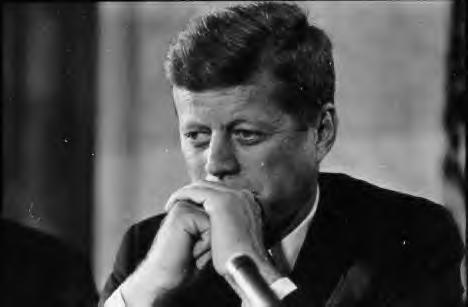

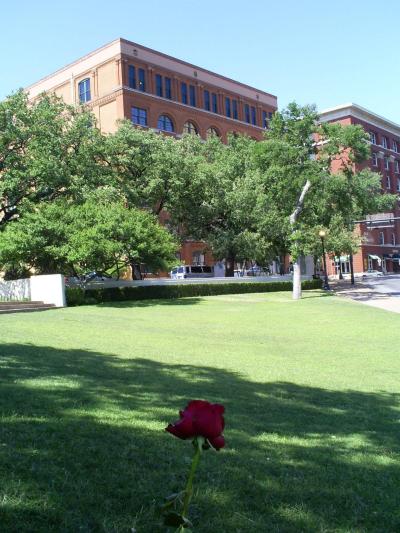
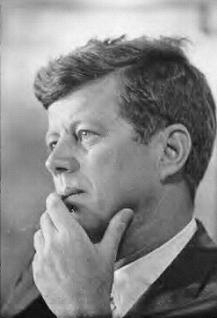
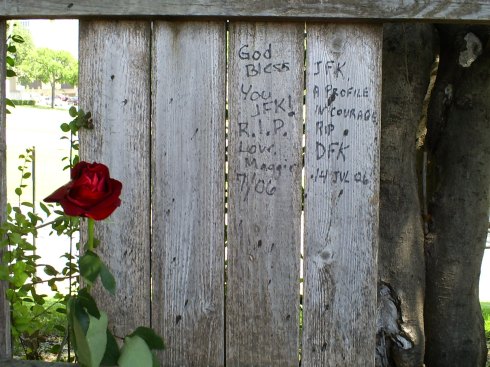












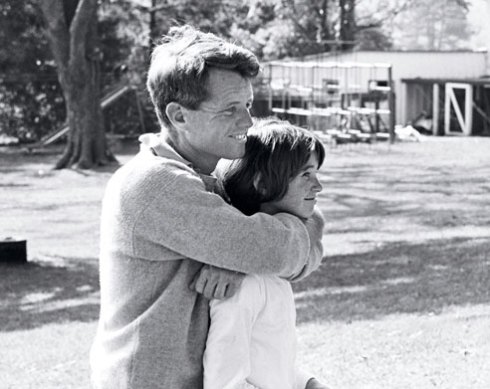
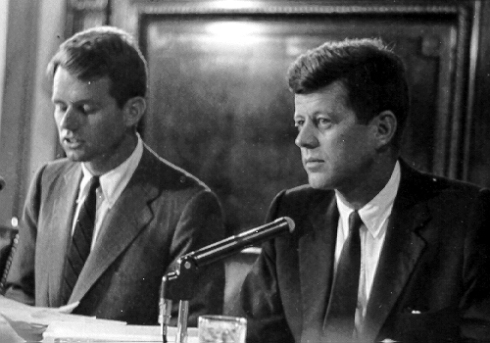








 March 9, 2009: Now online at the Federation of American Scientists website are
March 9, 2009: Now online at the Federation of American Scientists website are 








Recent Comments